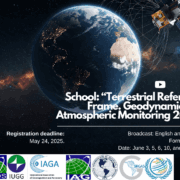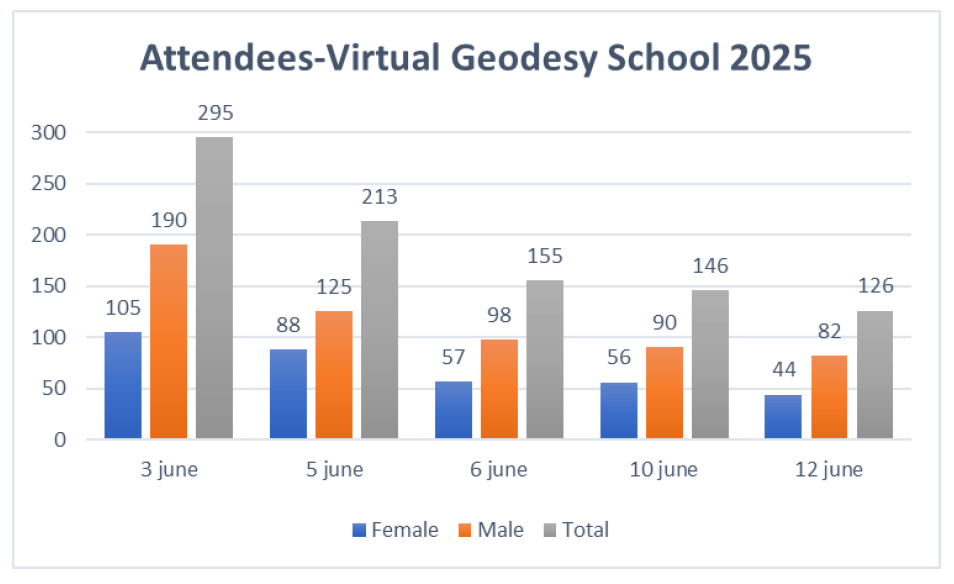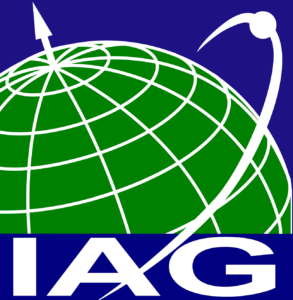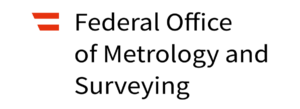Geodesy Virtual School 2025 – Summary
The Geodesy Virtual School 2025: “Terrestrial Reference Frame. Geodynamic and atmospheric monitoring.” was held virtually online in five sessions on June 3, 5, 6, 10, and 12, 2025. The coordination was carried out by Maria Virginia Mackern, professor at the Faculty of Engineering of the National University of Cuyo and Juan A. Maza University, Mendoza, Argentina, with the collaboration of the SIRGAS Executive Committee and the support of the IAG Executive Committee. It was endorsed by IUGG, IAG, IAGA, SIRGAS and GGOS.
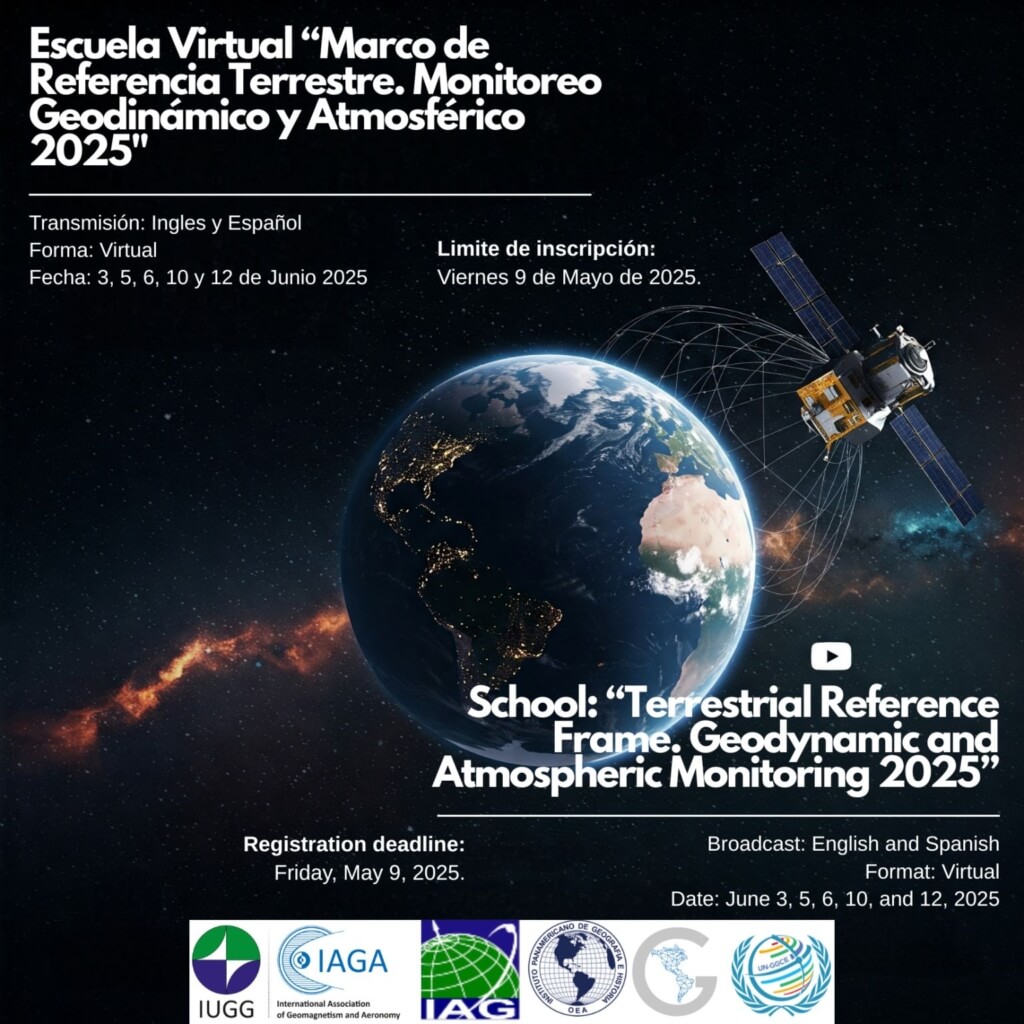 The objective of the school 2025 was to provide the most important concepts regarding the definition, implementation, and maintenance of global, continental, and national reference frames, as well as their importance in various applications. It also covered advancements in the monitoring of the “Earth System” in response to the challenges posed by Climate Change, which is already affecting us and impacting our most vulnerable societies.
The objective of the school 2025 was to provide the most important concepts regarding the definition, implementation, and maintenance of global, continental, and national reference frames, as well as their importance in various applications. It also covered advancements in the monitoring of the “Earth System” in response to the challenges posed by Climate Change, which is already affecting us and impacting our most vulnerable societies.
It was held virtually and was completely free of charge, allowing access to all interested participants. It was organized by the SIRGAS community from the Americas, with a special invitation extended to the geodetic community of Africa. It had the invaluable collaboration of renowned IAG specialists, who contributed with presentations in English or Spanish, which were pre-recorded and subtitled to ensure both languages were available to the audience. The program includes the names of all the instructors who contributed. We thank the Executive Committees of IAG and SIRGAS for their contributions in designing the final scientific program and selecting the instructors.
Below, we present a brief analysis of the resulting statistics, including both panelists (fig 1) and attendance (fig 2), for each day of the event.
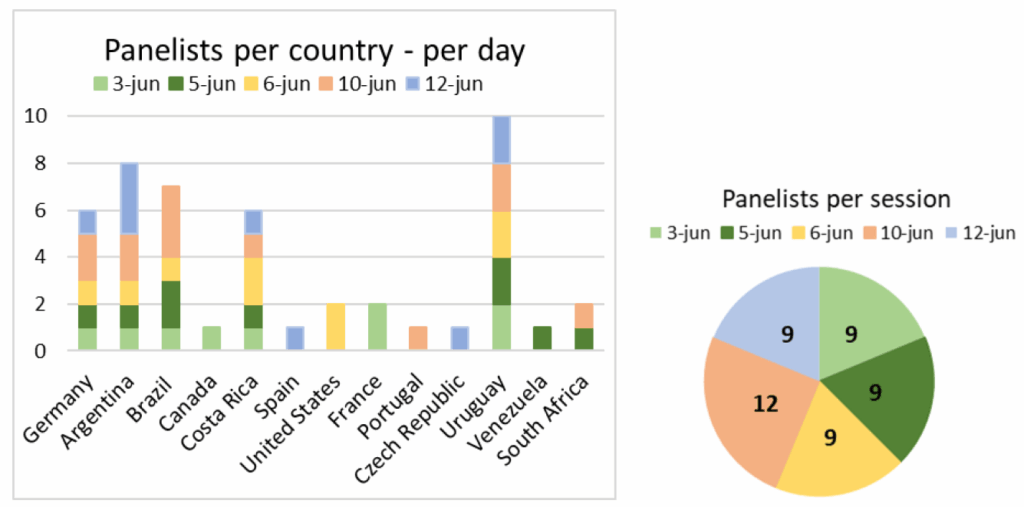 Figure 1. Geographic distribution of panelists (instructors and monitors) who contributed to the school.
Figure 1. Geographic distribution of panelists (instructors and monitors) who contributed to the school.
Figure 2. Number of attendees per day of the school. Gender statistics.
Attendees
Most participants were attendees from American countries, which was expected since the event was organized by SIRGAS and Spanish was ensured as a language. In second place were attendees from Europe (Germany, Austria, Belgium, Bulgaria, the Netherlands, France, Spain, Switzerland, and Portugal). In third place were attendees from Asia (Afghanistan, United Arab Emirates, Nepal, Pakistan, Russia, and Sri Lanka). Fourth were colleagues from Africa (South Africa, Uganda, and Burkina Faso), and finally, it is worth mentioning that between 2 and 3 attendees also participated from Indonesia, Oceania. Please view a breakdown of participation by country and continent in the Summary PDF.
Training Material – Videos
All lectures were recorded with the instructor’s audio in either Spanish or English and were translated with subtitles (in Spanish or English, as appropriate). These videos are available on the SIRGAS website at the following link https://sirgas.ipgh.org/en/virtual-school-terrestrial-reference-frame-geodynamic-and-atmospheric-monitoring-2025/
Or directly on YouTube: https://www.youtube.com/@sirgasamericas3437/videos
Acknowledgements
We thank IUGG for their support in this training project, which is grounded in inclusion and equality. We also appreciate the valuable endorsements from IAG, IAGA, and GGOS. Our gratitude goes to the Executive Committees of IAG and SIRGAS for their important contributions to designing the program and selecting the instructors.
We sincerely thank the 37 instructors who generously and efficiently delivered their lectures free of charge, helping to make this training event of exceptional academic quality. We are grateful to the Universidad Nacional de Santiago de Chile for providing the Zoom platform support used for the online transmission of the school throughout the five days. Finally, we thank the president of SIRGAS and the collaborators from the Military Geographic Service of Uruguay, especially Laura Camacho, for managing the hosting of the Zoom platform during the five sessions of the school — a task performed with punctuality and responsibility.
Edited by: Martin Sehnal (IAG Secretariat)

